
Atkinson - Field - New Dictionary of Christian Ethics and Pastoral Theology
David J. Atkinson, David F. Field - New Dictionary of Christian Ethics and Pastoral Theology
Downers Grove, IL: InterVarsity Press, 1995. - 2485 p.
USA ISBN 978-0-8308-9618-9 (digital)
USA ISBN 978-0-8308-1408-4 (print)
UK ISBN 978-0-85110-650-2 (print)
In bringing together articles on Christian ethics and pastoral theology, the editors hope that this Dictionary will provide a major resource for pastors, social workers, doctors and counsellors working in a Christian context, as well as for clergy, ordinands, teachers, religious-studies students and interested lay people. We have attempted to integrate as far as possible, within the terms of the subject matter, both moral theology and pastoral and practical theology. Decision-making often raises questions of pastoral psychology, individual temperament, social and personal factors, and determinants of various psychological, sociological, economic and ideological kinds. Behind these lies a certain moral framework, centred on the general question ‘What should be done?’, and implying a network of values, duties and moral principles. And behind these again lies a certain set of basic assumptions about the way the world is, and the way people are — in other words, a certain ‘theology’.
Our theological stance derives from the fundamental conviction that God has made himself known in Jesus Christ, his Son, and that he continues to disclose himself to us through the Holy Spirit within the life of his church. The Bible is our authoritative guide to God’s self-disclosure: the Word of God in written form. The traditions of Christian thinking throughout the centuries illuminate for us ways in which God has guided his people in interpreting the Bible in different contexts, and in discerning his truth and his will. The Holy Spirit, who is given to guide us into truth, informs and sanctifies our reason, so that with our minds, as well as our hearts and souls, we can find appropriate expressions for our love of God and love of neighbour, and for manifesting justice in all human affairs.
One unique feature of this Dictionary is that in Part One we have drawn together eighteen major ‘keynote’ articles. These articles are arranged not in the traditional alphabetical order but in a theological order (numbered one to eighteen, and for ease of reference the numerals appear in tinted blocks down the outer edge of the pages). They give a basic introduction to the main themes of Christian ethics and pastoral theology — like a main river, from which many smaller rivers flow. Their theological order illustrates our method. We begin, as all Christian thinking ought, with God, and then explore the implications of his character of love and justice. Our attention is drawn next to the nature of the human moral agent, and the gospel themes of sin and salvation. After general historical surveys of Christian ethics and of practical and pastoral theology, we focus on particular areas of interest. Old Testament and New Testament ethics are treated in separate articles, and then follow specific discussions on issues such as sexuality, medical ethics and economic concerns. We conclude the keynote articles with a major essay from Professor O’Donovan illustrating method and meaning in Christian moral reasoning.
Our hope is that these keynote articles may be used as a textbook, offering the reader a broad survey of the field, and inviting further exploration of specific and detailed issues through cross-referencing to the many articles in Part Two. A reader of ‘Economic Ethics’, for example, may be referred for more detail to articles in Part Two on such subjects as banking, monetarism, multinational corporations and taxation.
The Dictionary may also be used in reverse order, moving from the specific to the more general. Readers may turn to an article in Part Two on remarriage, to find that they wish to explore more fully the Christian theological traditions of thinking on marriage and divorce; and then be referred back to the major keynote article on ‘Sexuality’ in Part One.
In any selection of articles, gaps are inevitable. The task of weighing the interests of our readers against the need to keep this volume to a manageable size has not been easy. With one or two justifiable exceptions, we have not included biographical articles on persons who are still living.
* * *
CARTELS
A cartel is an agreement among competing enterprises to regulate competition in some way: e.g. among professional associations (architects, physicians, etc.); in establishing recommended prices and advertising standards; and as seen in OPEC (Organization of Petroleum Exporting Countries), where a uniform price is set for oil production quotas assigned among its members. An important historical antecedent is the medieval guild system, and the ethical difficulties surrounding the guilds apply to contemporary cartels.
Competition generally provides benefits to society — lower prices, better service, wider selection and improved quality. The pressure of competition can lead to socially troubling realities, however: unjust working conditions, inappropriate advertising* and harm to the surrounding environment.* How then can the socially beneficial outcomes be obtained without incurring the harmful realities? Every society has opted for government oversight. Aggressive oversight in one direction, however, may create problems in the other, and thus reliance upon self-governance by members of some professions (see Professional Ethics*) or industries (i.e. cartels) therefore seems prudent. This train of analysis can explain the otherwise confusing reality of generally outlawing cartels but de facto allowing them in certain cases.
Whatever their professed intentions, cartels effect a concentration of economic power. The Mosaic legislation (and prophetic appeal) clearly finds dangers in such concentration (e.g. Dt. 17:16-20, Ezk. 45:7-12 and 46:16-18 restrict the power of the king; and Mi. 4:4 and Zc. 3:10 see the ideal economic order as free from the oppression that results from the concentration of economic power in few hands). The Bible also calls for just employment conditions and warns against misrepresentation in commercial dealings — realities often used to justify the necessity for common standards among members of a profession or industry (i.e. cartels).
The long historical experience with cartels however, from the Middle Ages (at least) to the present, is that self-regulation risks abuse of the public interest. Adam Smith’s (1723-90) warning in 1776 rings true today: ‘People of the same trade seldom meet together, even for merriment and diversion, but the conversation ends in a conspiracy against the public, or in some contrivance to raise prices.’ Therefore, when cartels are allowed to function, they should be made accountable for their behaviour to the public in some well-defined way.
J.D.M.
LIBEL
The law recognizes a right on the part of the individual to have his or her reputation protected, so that the estimation in which that person stands is not injured by false statements to that person’s discredit unless there exists some lawful justification or excuse. A libel is committed if the defamatory statement is written or is made in some permanent form or broadcast. A slander is committed if it is spoken or is in some other transient form. Libel and slander are both referred to under the general description of ‘defamation’. Under Eng. law and the law of those countries deriving their system of law from England, a remedy in damages is awarded in civil proceedings, normally in a jury trial, to the injured party, which is designed to compensate for the harm done and injury to feelings. Libel is also a criminal offence because of its tendency to disturb public order, but in most jurisdictions special leave is required to bring a prosecution and very few cases are brought.
The law endeavours to preserve some balance between the individual interest in reputation and the public interest in freedom of speech and comment and the ability to assess the genuineness of a reputation. The law does this by providing a number of defences to an action in defamation. Truth, at least in civil proceedings, will always be a justification, but the burden of proving that the statement is true rests on the defendant. Fair comment on matters of public concern is permitted provided the comment is based on facts which are true and is not malicious (based on improper motive); a statement will be privileged if made on an occasion where there was a proper interest in making and receiving it and it is not malicious (e.g. reporting an alleged thief to an employer or to the police). Some statements, e.g. statements in court or in Parliamentary debate, are absolutely privileged whatever the motive.
In the US the courts, by reason of the First Amendment to the Constitution on freedom of speech, and from concern that public figures should not be immune from attack and enjoy a false reputation, have given much greater freedom to journalistic comment on persons in public life. The Eng. and Commonwealth legal systems have given public figures somewhat more protection leading to more restrained media comment. There is an important but difficult balance to be struck with widespread news media in modern open society between allowing the dissemination of libellous attacks on public figures and withholding information for fear of legal action and thereby allowing a false reputation to be maintained.
The ethical basis for laws on defamation is found in the ninth commandment forbidding false witness (Ex. 20:16). In a wider context, we are told to put off falsehood and to speak truth to our neighbour (Eph. 4:25). Slander and gossip are condemned in many places in the Bible (Nu. 14:36; Pss. 52:1-4; 101:5; Pr. 10:18; 20:19). We are to speak the truth in love (Eph. 4:15). As with the other commandments, the ethical injunction to love one another as Christ has loved us (Jn. 15:12) goes much beyond the letter of the commandment.
Bibliography
- P. Lewis, Gatley on Libel and Slander (London, 81981); H. Street, Freedom, the Individual and the Law (Harmondsworth, 51982).
P.D.McK.
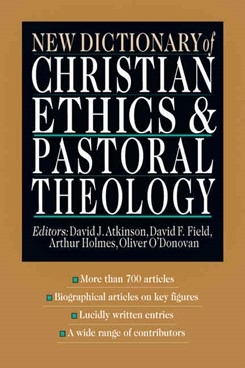
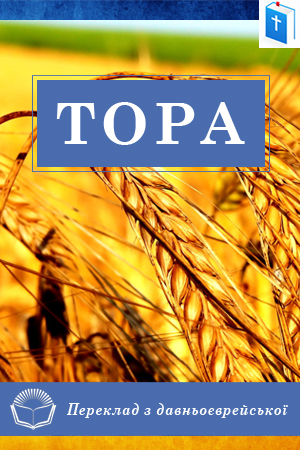
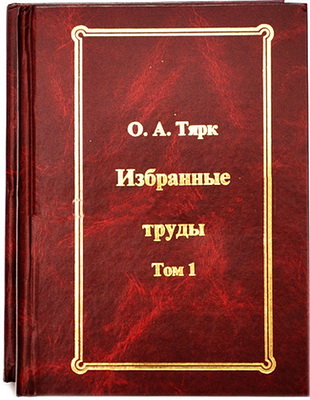
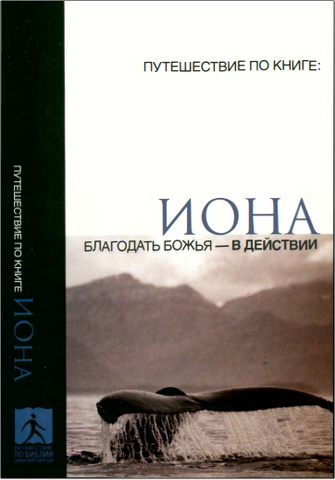
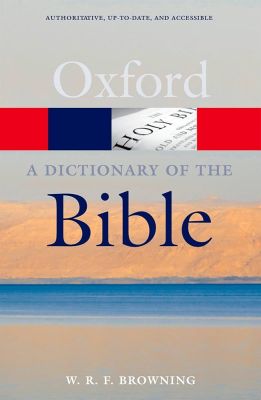
Комментарии
Пока нет комментариев. Будьте первым!